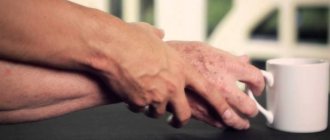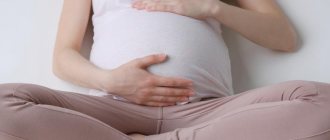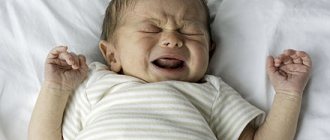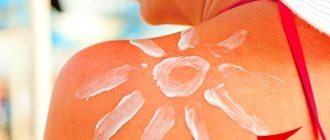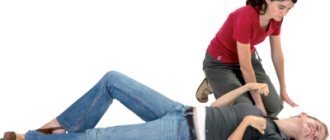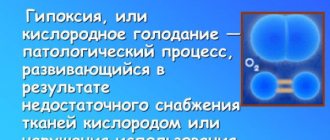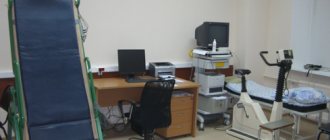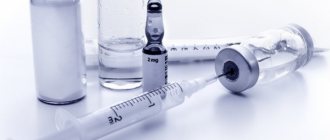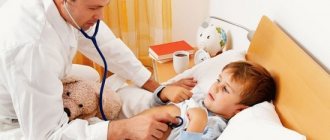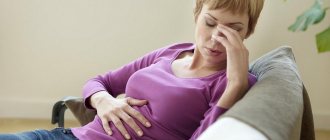Many people think that the only consequence of drinking alcohol is a hangover the next day. This is a deep misconception, because alcohol intoxication can provoke the development of dangerous consequences, and in some cases lead to death. One of these diseases is an epileptic attack after alcohol. In most cases, this pathology occurs in chronic alcoholics, but it can also occur in people who do not abuse alcohol. What reasons can trigger an epileptic attack after alcohol and what treatment is prescribed? We will examine these questions in the article.
What is alcoholic epilepsy
Epilepsy is a severe neurological disease characterized by seizures. Psychosis may occur. Alcohol and epilepsy are often mentioned together. This is because drinking alcohol can cause brain damage. Ethanol has a negative effect on brain neurons, so it can cause an attack even in small doses. Nerve cells recover very slowly, and alcohol consumption accelerates their deterioration, which inhibits the functioning of the central nervous system. Epilepsy due to alcohol begins to progress, and attacks characteristic of this disease occur more often. The peculiarity of this form of the disease is that the occurrence of seizures occurs under the influence of alcoholic beverages.
Epilepsy occurs due to the fact that the mother drinks during pregnancy
Fetal alcohol syndrome (FAS) is an umbrella term that describes adverse birth defects that occur in children whose mothers drank during pregnancy. People with this syndrome often develop comorbidities, including epilepsy. During the study, researchers looked at the incidence of epilepsy and seizures in people with FAS. The role of other causes that can cause seizures was also considered.
Results:
- 25 patients (5.9%) in the study group had a confirmed diagnosis of epilepsy,
- and 50 (11.8%) had at least one previous seizure episode. This means that pathology in the study group occurred in 17.7% of people.
The study found that the risk to the fetus increases if the mother drinks during the first trimester of pregnancy or all three trimesters. No other cause had as significant an impact on the risk of epilepsy as fetal alcohol syndrome.
Antiepileptic drugs are not combined with alcohol: dangerous side effects may occur. To avoid accidentally harming yourself, read the article about what other medications are incompatible with alcohol.
Article published: 2015-02-05T08:00:00+08:00
This article was last updated: 12/18/2018
Didn't find what you were looking for?
Try using search
doctor or administrator.
Read the dictionary of terms.
Causes
There are a large number of factors that provoke the appearance of epilepsy after alcohol. Let's look at them in more detail:
- The main reason for the development of pathology is damage to neurons under the toxic effects of ethanol.
- Long-term ethanol poisoning.
- Taking low-quality alcohol-containing liquids that are not intended for oral consumption.
- Atherosclerosis.
- Traumatic brain injuries.
- Hereditary epilepsy.
- Cerebral circulation disorders.
- Infectious diseases (for example, encephalitis).
- Brain tumors.
Forms
Currently, experts distinguish the following types of seizures:
It is noteworthy that this pathology can have two completely different manifestations - a classic attack in which convulsions occur, as well as a condition in which the patient freezes for a few seconds, after which he comes to his senses.
Symptoms
With this pathology, there is a very clear connection between the appearance of symptoms of the disease and the intake of alcoholic beverages. An epileptic seizure of alcoholic origin is very similar to the signs of traditional epilepsy, but has certain features unique to this type of disease. Let's look at them in more detail:
After drinking alcohol, an epileptic attack in most cases occurs on the 2-3rd day of drinking alcohol. But it is important to note that even if a person stops drinking alcohol, an epileptic attack can still occur. After all, long-term heavy drinking has a strong toxic effect on brain cells.
The epilepsy attack itself after alcohol has the following manifestations:
The attack can last from several seconds to several minutes. After this, the person regains consciousness, but does not remember the seizure itself. The patient feels unbearable pain and pressure in the muscles, which is why his limbs may be completely immobilized for some time. Then the person falls into deep sleep for several hours, after which he develops alcoholic insomnia, characterized by the following manifestations:
After the end of the attack, personality degradation is observed, accompanied by the following symptoms:
Signs before an attack
The following signs indicate the imminent onset of an attack::
- muscle cramps;
- chest spasm;
- hoarse breathing;
- shout;
- pale skin;
- blue lips
Often patients experiencing a seizure throw their head back.
In the absence of timely help, the situation can be fatal, since there is a risk of tongue retraction and respiratory arrest.
When the seizure ends, the person feels weak and tired . However, he does not remember what happened to him.
Individuals with addiction may develop persistent insomnia. There are realistic hallucinations, overly colorful dreams, and early awakenings.
Symptoms of an upcoming major seizure may appear in the days leading up to it . This may be increased irritability, insomnia, problems with appetite, headache, or general malaise.
Diagnosis of the disease
Currently, there are no specific diagnostic tests that can detect alcoholic epilepsy. But, knowing the symptoms preceding the attack, it is possible to identify the initial stage of the disease. Particular attention should be paid to the following warning signs:
After a preliminary diagnosis has been made, the patient is sent to a medical facility for further examination. In this case, a set of diagnostic measures is used, including instrumental and laboratory tests. The most common ones include the following:
It is very important that the above studies are carried out as soon as possible after the attack. In this case, it will be possible to most accurately establish a diagnosis and begin appropriate treatment.
First aid for an attack
Currently, every person should have the skills to provide first aid during an epileptic attack. Since the general manifestations of the disease are similar for any nature of the disease, the rules for providing first aid will be as follows:
Alcoholic epilepsy is not a fatal disease. If you follow the doctor's recommendations, she can be treated quite successfully. But if the patient continues to drink alcohol with epilepsy, despite the prescribed therapy, the attacks will continue, and the pathological process will become chronic, which will be much more difficult to cure.
First aid
Of great importance in reducing the risk of injury to a person during an attack is the provision of competent assistance to those nearby .
Often people, faced with an unexpected situation, feel confused and do not know how to help the victim.
It is important to understand that wrong actions can harm rather than help.
When providing first aid, it is important to adhere to the following recommendations :
- place the person on a horizontal surface;
- hold your head gently;
- turn your head to the side (so that the person does not choke on his own vomit while lying down);
- do not hold your tongue, do not unclench a person’s teeth (you can cause injury by careless actions);
- do not hold the limbs;
- remove all dangerous objects in the access area.
Treatment
Treatment of alcoholic epilepsy is complex and includes the following methods:
Let's take a closer look at the treatment options used.
Drug therapy for alcoholic epilepsy includes taking the same medications that are used for normal epilepsy. Treatment is based on taking anticonvulsant medications, which are prescribed by your doctor after receiving test results. The most prescribed drugs are:
Vitamins and tranquilizers are also prescribed.
Treatment with the above medications also has a beneficial effect on the patient’s psyche - it relieves emotional stress and helps fight anxiety.
Read also
Causes of epilepsy
“Where did my seizures come from?
There are no epileptics in our family!” - the most common phrase at the reception, we will tell you about the causes of epilepsy. Indeed, up to 70% of all epilepsies are genetically predetermined... Read more
Temporal lobe epilepsy
Temporal lobe epilepsy is a special form of epilepsy, which is characterized by the localization of the epileptic focus in the temporal region of the brain. This type of pathological process is one of the most…
More details
Epilepsy and pregnancy
Managing patients with epilepsy and pregnancy is incredibly complex and challenging. What are the features of pregnancy in patients with epilepsy? In 1-2% of cases there is a chance of developing epileptic...
More details
Treatment of epilepsy in Samara
Epilepsy therapy is a long process and requires interaction between the epileptologist and the patient. Currently, it is possible to stop attacks and achieve remission in 60%! How to do it? Basic…
More details
Symptoms of epilepsy
How does epilepsy manifest? The most “famous” epileptic attack is a convulsive one, as the most “bright” one, this attack includes general tonic-clonic seizures, blueness of the face, salivation, ...
More details
Diet
Oddly enough, following a special diet is an important part in the treatment of alcoholic epilepsy. It is necessary to include foods rich in protein in the diet, and reduce the consumption of carbohydrates to a minimum, because they can be a trigger for an attack.
It is recommended to increase the amount of foods such as:
You should limit your consumption of the following foods:
Epilepsy is curable
Alcoholic epilepsy involves treatment, the goal of which is to reduce the number of seizures to a minimum. Their prevention is accompanied by:
- Maintaining an alcohol-free lifestyle.
- Regular intake of medications selected individually. The patient must be mentally prepared for long-term and constant treatment day after day.
- Compliance with routine aspects (healthy sleep and rest).
- In some cases, surgical intervention is required. After a detailed diagnosis, the area producing the attack is isolated and excised neurosurgically: the skull is opened, electrodes are placed on the brain that accurately read the focus, and this area is removed pointwise.
For prevention, the patient is advised to spend more time in the fresh air, to avoid old groups of drinking buddies, who are always ready to treat them to free drinks and arrange for further drunkenness.
As an aid, you can resort to traditional medicine recipes. All kinds of decoctions of soothing herbs have a beneficial effect on the nervous system, soften irritability, and normalize sleep.
Patients will also need the help of qualified psychologists. Only adequate therapy will help prevent severe disease.
Other treatments
In addition to basic treatment methods, walks in the fresh air, moderate physical activity, and pleasant emotions are recommended. To normalize the psycho-emotional state, traditional medicine has proven itself well. Decoctions and infusions of sedative herbs have a beneficial effect on the patient’s nervous system, normalize his sleep and relieve irritability. It is important that they are alcohol-free. The most common traditional medicine used in the treatment of epilepsy are:
But there are situations in which surgical treatment may be required. This becomes necessary in advanced forms of alcoholic epilepsy, in which the patient’s life is threatened. In this case, neurosurgical intervention is performed.
It is important that close people are with the patient during therapy and during the recovery period. After all, when asking whether alcohol can be used for epilepsy, a person may not be mentally ready to get rid of the disease and at the same time easily breaks down again.
Treatment in adults
How to treat alcoholic epilepsy? The first step in treating epilepsy due to alcoholism is giving up alcohol.
If a patient develops a life-threatening condition, he is admitted to the intensive care unit.
To relieve withdrawal symptoms, the patient is given droppers with glucose, salt solutions, sedatives and anticonvulsants.
After the acute condition is relieved, the alcoholic is advised to undergo treatment at a drug treatment clinic. Treatment for epilepsy after drinking includes:
- Drug treatment.
- Psychotherapeutic methods.
- Hypnosis.
- Coding.
Typically, alcoholic epileptics are treated with the following groups of drugs:
- Antiepileptics (Topiramate, Carbamazepine).
- Eliminating cravings for alcohol (Metadoxil, Vivitrol).
- General strengthening (vitamins, minerals).
Psychotherapy
Psychiatrists use group and individual techniques to treat alcoholics. Basic strategies: “assault”, “waiting”, “social pressure”.
It is considered the safest method of treatment. The hypnologist influences the patient’s psyche, creating an aversion to alcohol (Dovzhenko’s method).
Coding
The encoding method involves the introduction of a drug into the blood or under the skin of a patient, which, together with alcohol, can cause severe poisoning or death.
To prevent epileptic seizures, the patient should follow a low-protein diet.
The patient should eat more fat. This creates a calcium deficiency and reduces the frequency of nerve impulses.
It is also necessary to avoid tonic drinks (tea, coffee, spicy foods). Folk remedies that work well include soothing herbal infusions and essential oils (valerian, motherwort, mint). Collections can be taken in the form of tea, oils are added to baths.
The main thing in the treatment of alcoholic epilepsy is the desire of the patient himself.
Consequences
When drinking alcohol while suffering from epilepsy, the consequences can be very severe. In addition to the fact that during an attack a person can cause serious injury to himself, there is a negative impact on the entire body as a whole:
The listed consequences help answer the question of whether alcohol can be used for epilepsy or not. Any treatment option will not bring recovery if drinking continues. In this case, the body becomes intoxicated, and brain cells continue to be destroyed.
Prevention
Alcoholic epilepsy is characterized by the fact that seizures occur directly during a hangover or at the time of drinking alcohol. Therefore, the most basic preventive measure will be to stop drinking alcohol after the first attack or when its warning signs appear.
Signs and symptoms
As such, there are no symptoms before a seizure of alcoholic epilepsy because the seizure begins suddenly. Moreover, the attack itself in most cases is a harbinger of impending delirium tremens.
There are two types of attacks characteristic of AE:
- Generalized.
- Non-convulsive.
The first subtype is more common, and its symptoms cannot be confused with anything else, in particular:
- sudden fall of the patient;
- strong clenching of teeth (to the point of creaking);
- arching of the whole body (predominance of the tonic phase);
- flexion of limbs;
- breathing problems (it may freeze for a while);
- strong prolonged groans;
- uncontrolled urination.

